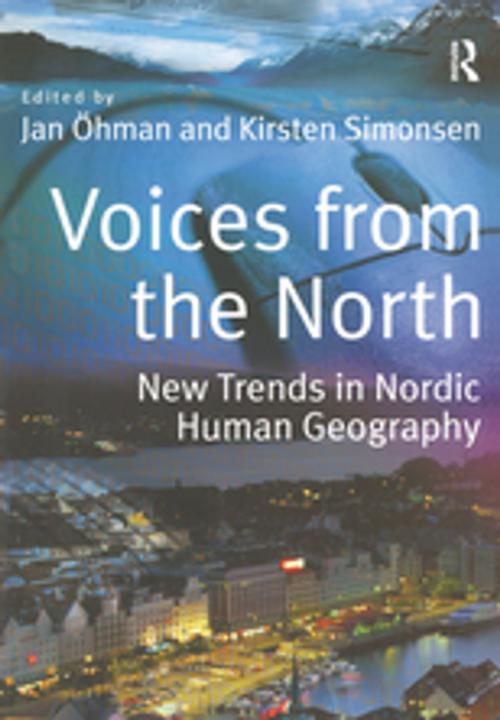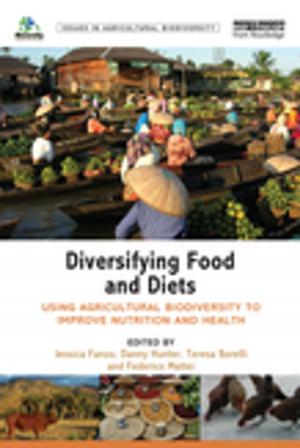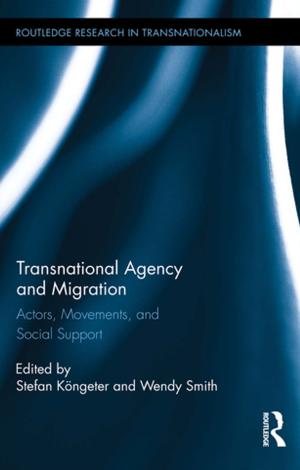Voices from the North
New Trends in Nordic Human Geography
Nonfiction, Social & Cultural Studies, Social Science, Human Geography| Author: | Jan Öhman, Kirsten Simonsen | ISBN: | 9781351875530 |
| Publisher: | Taylor and Francis | Publication: | May 8, 2018 |
| Imprint: | Routledge | Language: | English |
| Author: | Jan Öhman, Kirsten Simonsen |
| ISBN: | 9781351875530 |
| Publisher: | Taylor and Francis |
| Publication: | May 8, 2018 |
| Imprint: | Routledge |
| Language: | English |
While contemporary human geography has widely acknowledged that knowledge has both contingent and contextual character, international literature has tended to blot out differences and reproduce hegemonic Anglo-Saxon discourses. Any interest in destabilizing such power-knowledge systems calls upon interventions from other voices. Nordic voices in particular have not been well represented in current human geography. This book redresses the balance by offering a unique assessment of the geographical research being undertaken in the Nordic countries and by demonstrating the way in which these voices contribute to international debate. It brings together a range of Nordic authors, each of whom has made a significant contribution to such debates, and considers the relationship between production and social institutions in local development. It also examines the ambiguous role of the welfare state in the Nordic countries, issues of social practice and identity and their relationship to spatiality, new approaches to landscape and environment, and the significance of difference and relations of power. Theoretical discussion, illustrated by empirical examples, reveals the interweaving in Nordic human geography of international affiliations and Nordic situatedness.
While contemporary human geography has widely acknowledged that knowledge has both contingent and contextual character, international literature has tended to blot out differences and reproduce hegemonic Anglo-Saxon discourses. Any interest in destabilizing such power-knowledge systems calls upon interventions from other voices. Nordic voices in particular have not been well represented in current human geography. This book redresses the balance by offering a unique assessment of the geographical research being undertaken in the Nordic countries and by demonstrating the way in which these voices contribute to international debate. It brings together a range of Nordic authors, each of whom has made a significant contribution to such debates, and considers the relationship between production and social institutions in local development. It also examines the ambiguous role of the welfare state in the Nordic countries, issues of social practice and identity and their relationship to spatiality, new approaches to landscape and environment, and the significance of difference and relations of power. Theoretical discussion, illustrated by empirical examples, reveals the interweaving in Nordic human geography of international affiliations and Nordic situatedness.















